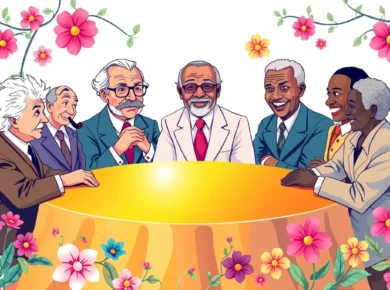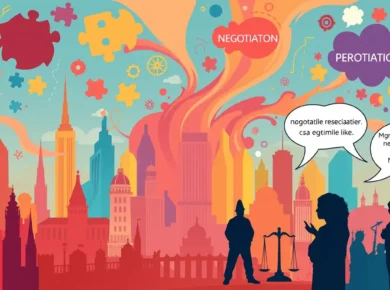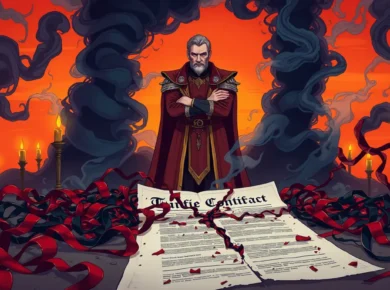Negotiation is an essential skill in today’s fast-paced business world. Whether you’re a seasoned executive or an entry-level professional, learning to negotiate effectively can make all the difference in achieving your goals. In this article, we’ll explore the art of negotiation and provide you with practical tips and strategies to help you negotiate to win.
Understanding the Basics of Negotiation
Before we dive into the strategies, it’s essential to understand the basics of negotiation. Negotiation is a give-and-take process between two or more parties with the goal of reaching a mutually beneficial agreement. It involves communication, persuasion, and compromise. Effective negotiation requires a deep understanding of the other party’s needs, interests, and goals.
To negotiate successfully, you need to be aware of your own goals, limits, and alternatives. You should also be able to communicate your position clearly and persuasively. Remember, negotiation is not about winning or losing; it’s about finding a solution that works for everyone involved.
The Power of Preparation
Preparation is key to successful negotiation. Research the other party’s needs, goals, and limitations. Anticipate their concerns and be prepared to address them. Develop a clear understanding of your own goals, limits, and alternatives. This will give you the confidence and flexibility to negotiate effectively.
Prepare a list of questions to ask the other party, such as:
-
What are their goals and objectives?
-
What are their non-negotiables?
-
What are their pain points?
-
What are their alternatives?
Having a clear understanding of the other party’s perspective will help you tailor your approach and increase your chances of success.
Developing a Negotiation Strategy
A negotiation strategy is a plan of action that outlines your goals, tactics, and contingency plans. It helps you stay focused and ensures that you’re prepared for any scenario. Here are some tips to help you develop a negotiation strategy:
Set Clear Goals
Define your goals and limits clearly. What do you want to achieve? What are you willing to compromise on? What are your non-negotiables? Having clear goals will help you stay focused and ensure that you don’t concede too much.
Identify Your BATNA
BATNA stands for Best Alternative to a Negotiated Agreement. It’s the best outcome you can achieve if the negotiation fails. Knowing your BATNA will give you the confidence to walk away if the negotiation doesn’t meet your goals.
Use Time to Your Advantage
Time can be a powerful tool in negotiation. Take your time to think before responding to an offer or counteroffer. Use the time to analyze the situation, consider your options, and plan your next move.
Look for Mutual Benefits
Negotiation is not a zero-sum game. Look for opportunities to create mutual benefits. Ask yourself, “What can I offer that will benefit the other party?” Finding a solution that works for everyone involved will increase your chances of success.
Mastering the Art of Persuasion
Persuasion is a critical component of negotiation. It involves using various tactics and strategies to influence the other party’s decision-making process. Here are some tips to help you master the art of persuasion:
Use the Power of Storytelling
Storytelling is a powerful tool in negotiation. It helps to build rapport, establish trust, and create an emotional connection with the other party. Use stories to illustrate your points, make your message more relatable, and create a lasting impression.
Make a Strong First Impression
The first impression is crucial in negotiation. Dress professionally, be punctual, and be prepared. A strong first impression will set the tone for the rest of the negotiation.
Use Body Language to Your Advantage
Body language can convey confidence, enthusiasm, and credibility. Maintain eye contact, use open and confident body language, and avoid fidgeting or nervous behavior.
Use Questions to Your Advantage
Questions are a powerful tool in negotiation. They help to gather information, build rapport, and create a sense of mutual understanding. Use open-ended questions to encourage the other party to share their thoughts and feelings.
Overcoming Common Negotiation Obstacles
Negotiation can be a complex and challenging process. Here are some common obstacles you may encounter and tips to overcome them:
Dealing with Aggressive Negotiators
Aggressive negotiators can be intimidating and challenging to deal with. Stay calm, remain focused, and avoid getting defensive. Use active listening to understand their concerns and address them effectively.
Handling Multiple Parties
Negotiating with multiple parties can be complex and challenging. Identify the key decision-makers, build relationships with them, and ensure that everyone is on the same page.
Dealing with Uncertainty
Uncertainty can be a major obstacle in negotiation. Stay flexible, be open to creative solutions, and be willing to take calculated risks.
Conclusion
Negotiation is a skill that can be developed with practice, patience, and persistence. By understanding the basics of negotiation, developing a negotiation strategy, mastering the art of persuasion, and overcoming common obstacles, you can negotiate to win. Remember to stay focused, be flexible, and look for mutual benefits. With these skills, you’ll be well on your way to achieving your goals and building successful relationships.
FAQ
What is the most important thing to remember in negotiation?
The most important thing to remember in negotiation is to stay focused on your goals and limits. Know what you want to achieve and what you’re willing to compromise on.
How do I handle an aggressive negotiator?
Stay calm, remain focused, and avoid getting defensive. Use active listening to understand their concerns and address them effectively.
What is BATNA?
BATNA stands for Best Alternative to a Negotiated Agreement. It’s the best outcome you can achieve if the negotiation fails. Knowing your BATNA will give you the confidence to walk away if the negotiation doesn’t meet your goals.










